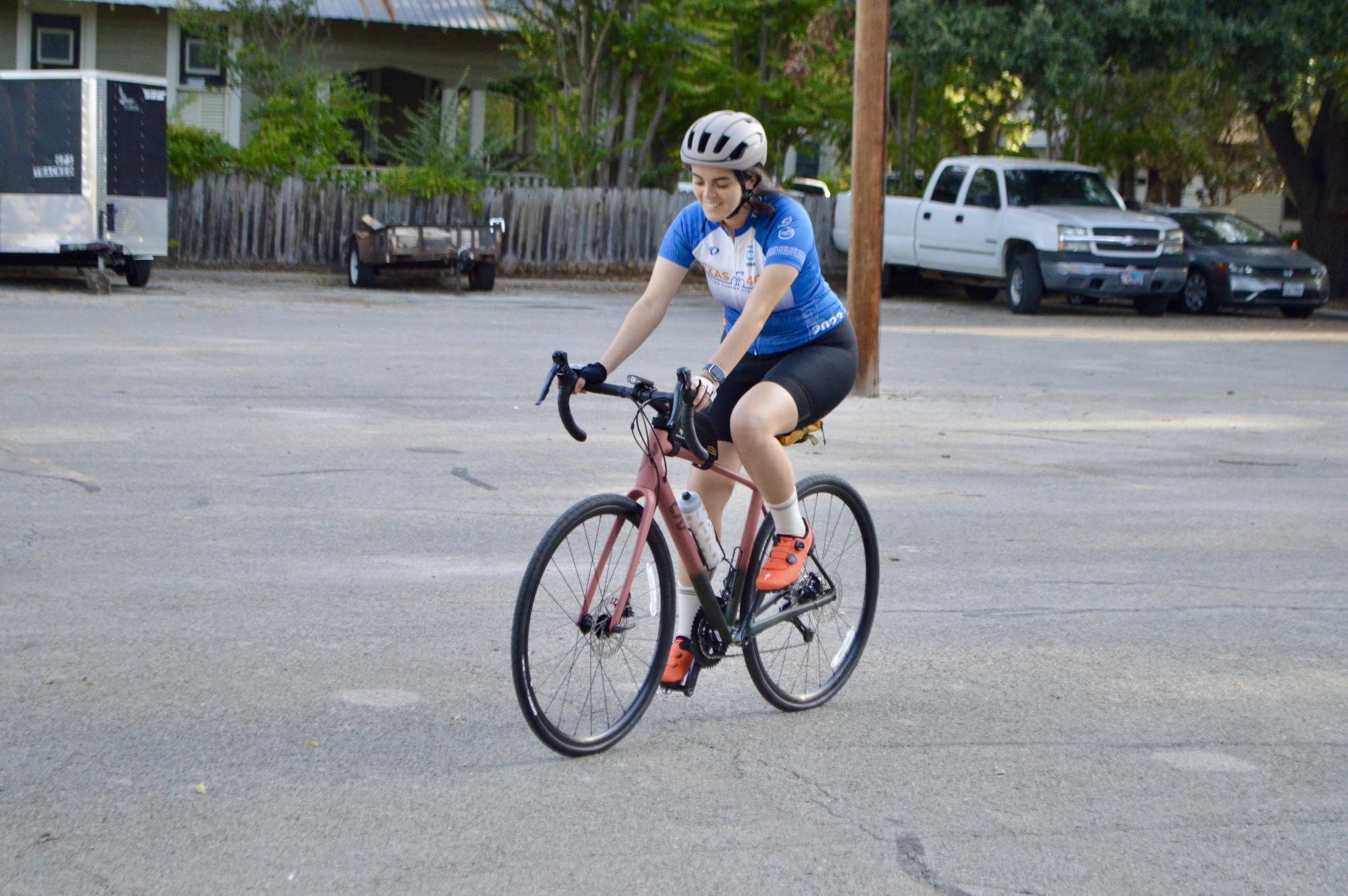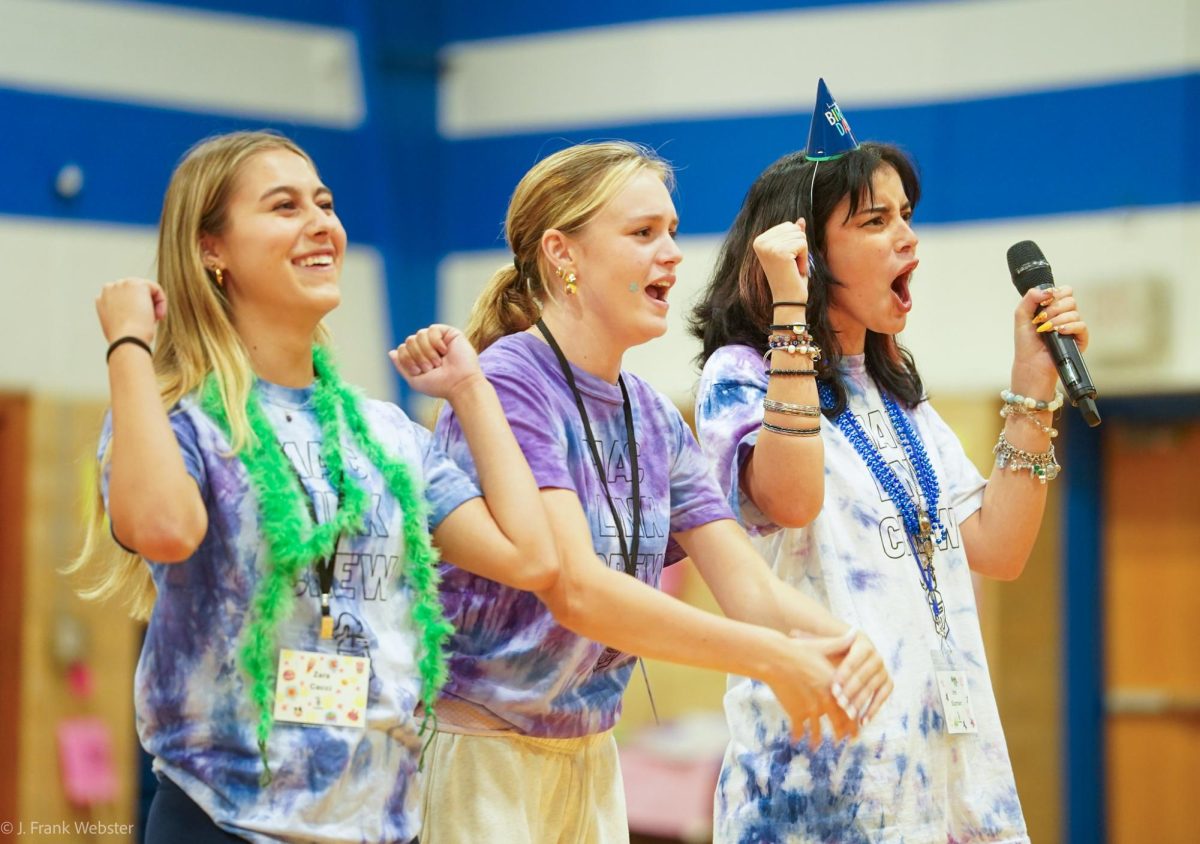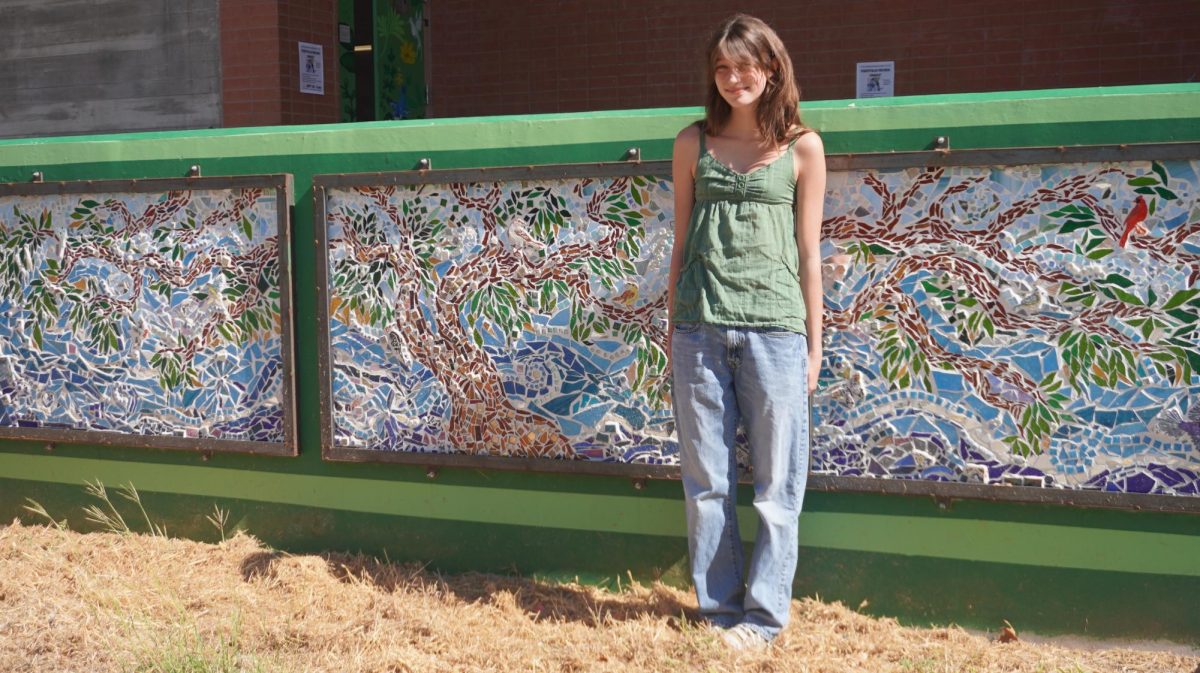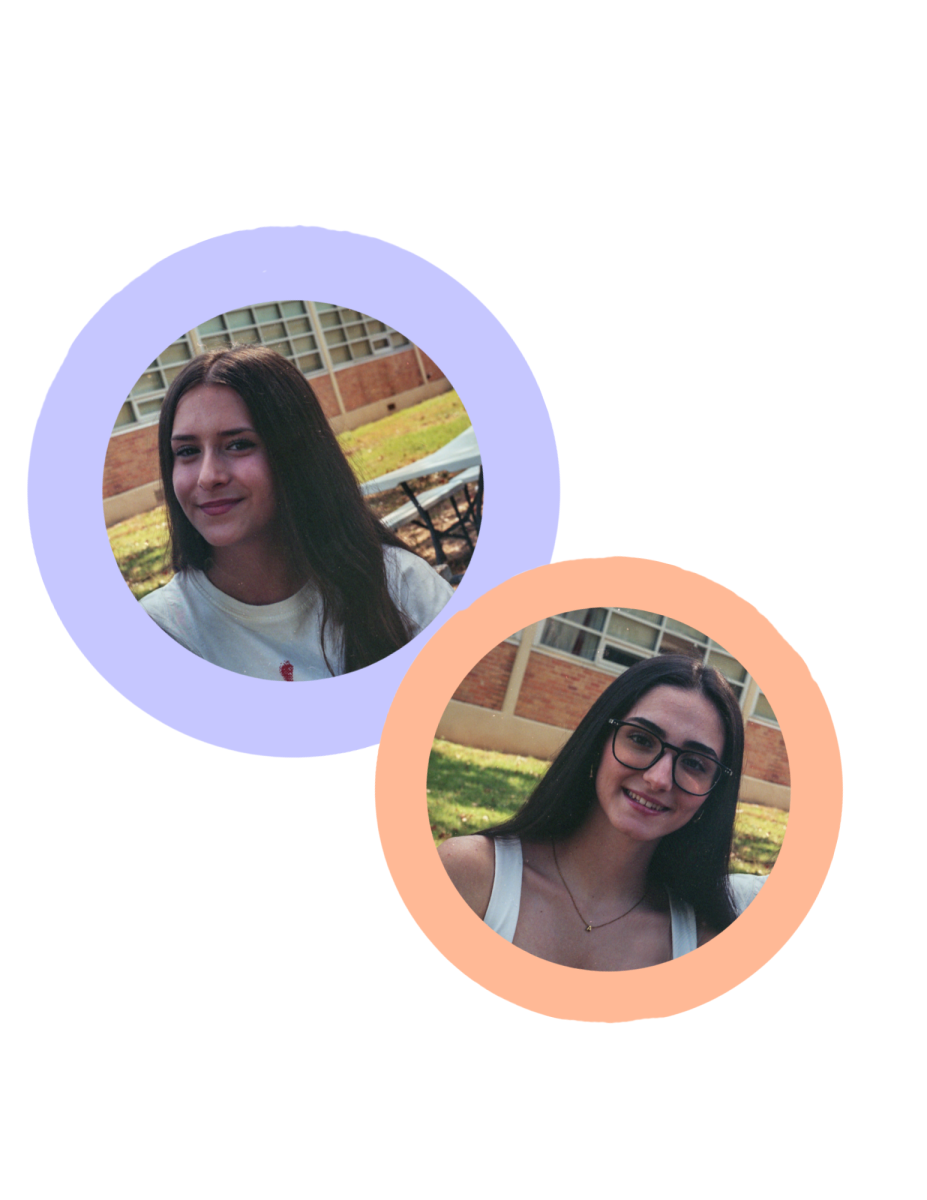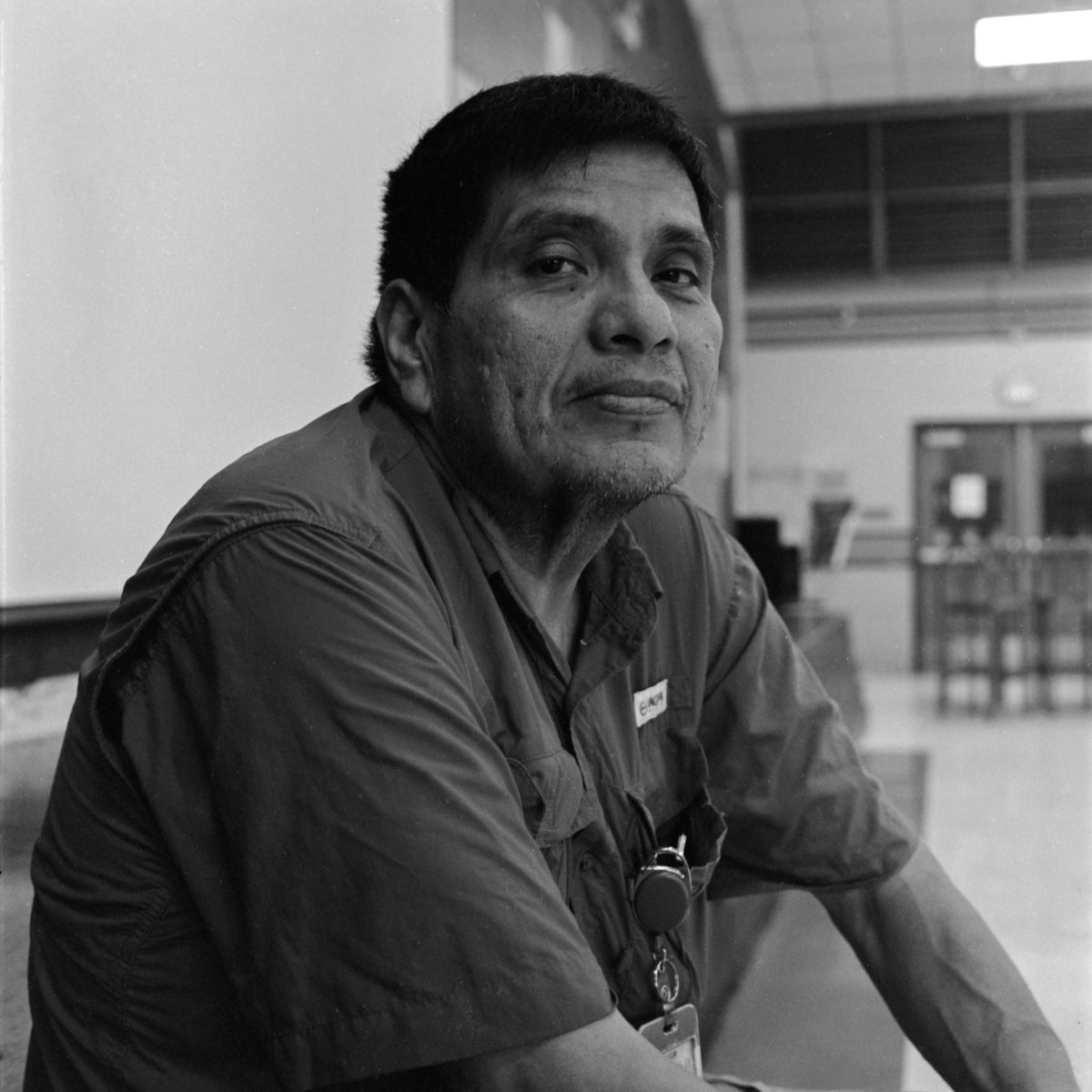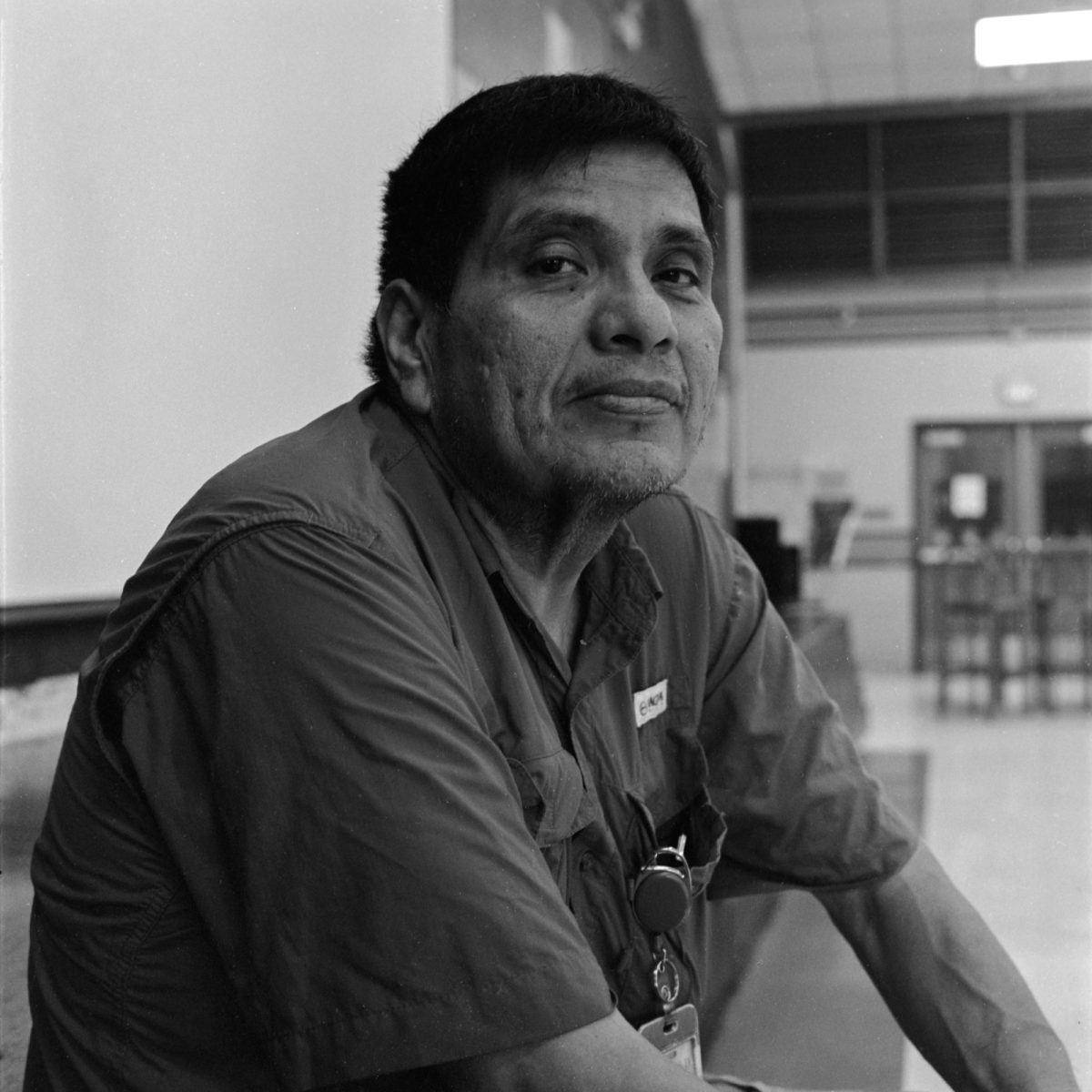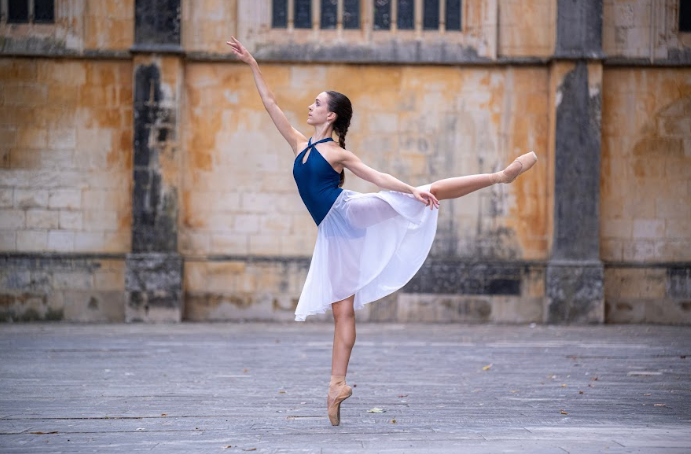When Carolina Arellano heard about the opportunity to bike ride from her hometown of Austin, Texas, to Anchorage, Alaska, to raise money for cancer and help the research industry, she knew it was too good to pass up. While her love for riding was newfound, Arellano knew supporting cancer research would make every mile ridden worth it. Through riding and community surrounding the journey she has grown exponentially, and before even setting off on the trek, she felt herself making a difference in the cancer research community made a world of change.
After graduating from McCallum in 2020, Arellano continued her path in education at the University of Texas with a degree in international relations and global studies. Going into her junior year of college, however, Arellano found a new path to pursue. Texas 4000, an organization for UT students, dedicated to furthering cancer research, provides yearly bike rides to Alaska to continue this mission and to support the cancer community nationwide. The ride to Anchorage is currently the longest charity ride in the world.
“I really thought I could do something for that cause,” Arellano said. “It just was something that really resonated with me.”
Considering herself an amateur rider when she applied for the program and having only started biking during the pandemic as a way to connect with her friends, Arellano believed in the mission so heavily that she was willing to put in the training and effort to be a part of it.
“I really liked the sport,” Arellano said, “so I got into it a little more.”
The mission of the project especially touched Arellano given her family’s history with cancer and her desire to help families in the future who encounter that struggle.
“My grandmother passed away from cancer in 2008,” Arellano said. “And my mom smokes a lot of cigarettes, so I made an agreement with her that once I completed the ride to Alaska, she would quit smoking.”
This was just the beginning for Arellano. After getting accepted into the ride program, Arellano would endure months of training to prepare for the ride and learn the proper tactics on how to achieve such a significant milestone.
“It’s put out as a leadership development program, and there’s three major semesters of commitment,” Arellano said. “The first one starts in the spring, and you basically meet your team, and then you get to know a little bit more about what you’re getting into.”
Arellano knew getting involved with the program was the right decision, but she learned the importance of maintaining commitment throughout the program.
“[After the first semester,] you start your ride year [including training and the 70-day ride itself] in the fall,” Arellano said. “They give you your bike, which the organization provides to us free of cost.”
Texas 4000 uses its resources to achieve its goal of providing the necessary equipment for its cyclists. The program is focused on getting the riders to be as well-prepared for the journey as possible from resources to training and beyond.
“There’re other things like training camps,” Arellano said. “We practice skills like how to drink water while you’re riding your bike, all things you would not really think you had to know, but you have to know.”
According to Texas 4000 program coordinator Caroline Ferguson, helping riders prepare for the summer ride over a long period ensures a smooth sailing and safe experience.
“Our goal is to create a top-notch model for developing student leaders aiming for national recognition,” Ferguson said. “We continuously strive to increase our impact in the fight against cancer.”
Ferguson’s role within the program allows her to be hands-on with the riders, as well as the operation itself.
“As a program coordinator at Texas 4000, I ensure smooth program operations,” Ferguson said. “I assist riders with ride planning, onboard new riders, plan meetings and presentations and conduct research for event success. The 18-month program includes learning about the organization, cancer research, community service and fundraising, all before bike training.”
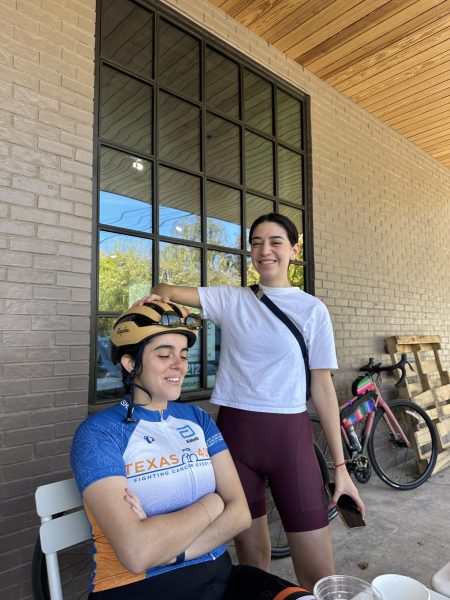
With the ride starting on May 24, the team trains multiple days a week to prepare for the intense terrain, weather and obstacles along the way. The training also prepares riders for any unexpected situations that may arise.
“Sometimes gravel can be a concern because road bikes have thin tires, so it’s a little bit difficult to gain traction,” Arellano said. “Cars and terrain, but also camping [along the route is a concern]. I’ve heard bears are a big thing, so we have a big can of bear spray just in case.”
The ride is split into three separate routes. While everyone will end up riding the same amount of miles in the same amount of days, each rider from the organization is assigned a different route and a riding group to ride with.
“One [route] is called the Sierra and that goes through the Pacific Coast and then it goes through Vancouver,” Arellano said. “The second one is the Rockies, which goes through Colorado and the Rocky Mountains, and [the last one], The Ozarks, goes through the Cancer Belt.”
While riders don’t get to pick their designated route, they are allowed to detail which they would prefer.
“I indicated I wanted Sierra because I speak Spanish, and there is a huge Spanish-speaking population in California, so I think it would be a good fit,” Arellano said. “They try to align us to our preferences, but a lot of people prefer Sierras, so it just depends, but ultimately we’re all going to the same destination.”
The ride will take place over 70 days. To reach Anchorage in the allotted amount of time, the cyclists will have to follow a tight schedule. The day starts at 6:30 a.m. for the riders, and as the sun comes up, they start on the 70-150 miles they have to ride each day.
“[Riding with Texas 4000 has] taught me the importance of resilience and commitment,” Arellano said.
Another essential part of the ride is sponsorship. While part of the time, cyclists will camp with the gear they bring with them on the ride, sponsors can also host the group, by putting them up for a night and giving them a place to shower, do laundry and eat.
“We tend to look for sponsors that will be willing to host our team instead of paying for lodging,” Arellano said. “They can donate if they want to, but ideally they provide us with meals and an opportunity to shower.”
Getting to Anchorage isn’t the main goal of the ride, however. While it’s the final destination, riders will make stops in towns along the way impacting communities affected by high numbers of cancer.
“Our riders hold educational programs in the communities they visit during the summer,” Ferguson said. “They also share their reasons for riding with communities, listen to their stories and collect donations from people who are interested in supporting our cause.”
Donations are a big part of the Texas 4000 mission as well. In the time before the ride and the 18 months a rider is part of the program, they are required to raise $4,500 for the 4,500 miles ridden. The money provides both funding for the journey and supporting cancer foundations. Along with securing donations, the riders are required to volunteer with cancer organizations and services to have the maximum amount of impact.
“Texas 4000 continues to grant and support cancer research – such as Dell [Medical School’s] blood cancer research labs –and patient support services – like Brent’s Place, a safe and clean place for families to stay while their loved ones undergo cancer treatment in Denver,” Ferguson said. “Our keys to a cancer-free future are prevention, early detection and education, so we also spread knowledge through educational programs as cyclists visit communities along their 70-day journey to Alaska.”

The ride timing is strategically planned so students can take the summer and complete it without having to miss any school. In Arellano’s case, she took the option of graduating early this past December from UT, so she could have more time to train and devote herself to the project.
“It really helped regulate my stress and anxiety levels,” Arellano said. “Having something to do after going to class every day was really helpful to let out all my stresses. It became something fun and rewarding that I could do, and it actually motivated me to graduate a semester early, so that I could fully dedicate myself [to it].”
With a little over two months left until the ride, Arellano has focused on getting her riding routine down, volunteering whenever she can, and raising money to be able to achieve the ride.
“From now until May, we have to train and we have to ride 2,000 miles,” Arellano said. “I’m at 200 right now, so one-tenth of the way there, and we have to complete our service hours, which is 30 hours for the whole team.”
Arellano explained that having to raise $4,500 is a much bigger feat than she anticipated.
“It’s hard to ask for money,” she said. “It’s kind of like a vulnerability.”
While the ride itself has a lot of moving parts to pin down and work through leading up to it, Arellano remains focused on her goal. Being able to have such a hands-on approach to helping cancer patients and the research for a cure has motivated her to be where she is now.
“I don’t know how to describe it, but I feel a sense of pride in myself for having had the grit, to commit to something so long,” Arellano said.
The door to raising money and advocating for cancer research has inspired Arellano more than she could’ve imagined. After the ride, her goal is to continue her feat and inspire others to join in on the cause.
“Texas 4000, I think, is a cool way to promote cancer awareness, so I definitely still want to help,” Arellano said. “But I want to make it bigger because I feel like we’ve been here for so long, but so few people know about it. I want to focus on branching out to the cycling community.”
The community is a big part of what Arellano has picked up during her time with the program, from new friendships to a group of riders who will support her the whole way. Maleni Arredondo, a friend Arellano met through Texas 4000, explained that developing a close relationship with Arellano over their shared passion makes the experience more comfortable.
“It’s been a wonderful experience to get to know and support each other through our journey in Texas 4000,” Arredondo said. “Whether it’s pushing each other during training rides, enjoying a post-ride meal or supporting one another in our fundraising efforts, our friendship has really flourished into a special one, one that I didn’t know I could gain from this experience.”
While the ride is still months away, the two work together to harness the power of the organization to raise money for cancer. Arredondo, like Arellano, lost a loved one to cancer in 2018 inspiring her to take this ride.
“Texas 4000 and my team have taught me the importance of acknowledging the emotions that come with mourning and the power of channeling them into an amazing cause,” Arredondo said. “As a team, specifically when facing a steep hill, we like to say, ‘We can do hard things for the people we love.’ I think that is the most beautiful way to keep a loved one’s memory alive.”
Arredondo also acknowledged that the ride has tested her patience. Having Arellano alongside her has made both of their journeys smoother.
“Cycling to Alaska is not easy,” Arredondo said. “Cycling to Alaska in the fight against cancer is even harder. You have to learn to not only acclimate your body to the physical strain but also to your emotions. Doing so with this amazing group of people, with Carolina, has been very rewarding.”
The duo’s friendship has flourished through the ride and training and has made the whole situation more doable and enjoyable.
“She makes me feel at home,” Arredondo said. “I’m so glad I’ll have her during the summer ride as we tackle 4,500 miles and 70 days on the Sierra route.”
With still a long way left in her journey, and the ride itself upcoming, Arellano thinks back to her grandma for inspiration. She was the original reason for Arellano’s commitment to advocacy and continentally spreading her message to others.
“Having my grandmother and a couple of other family members being affected by cancer really did motivate me to pursue this organization” Arellano said. “It’s taught me how vulnerable we can be with each other and how honest we can be, and even how accepting we can be of each other and our differences.”
The journey, in Arellano’s eyes, will bring her closer to something she’s passionate about. It will allow her to impact others’ lives in a unique way, one she would’ve never dreamed she could achieve.
“It’s like a community feeling,” Arellano said. “I hope to have lifelong experiences and memories with people that will never leave me and will change my life.”



